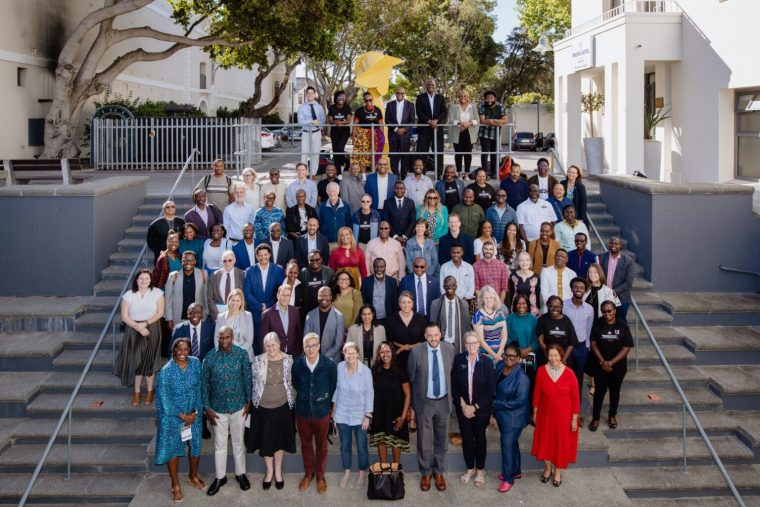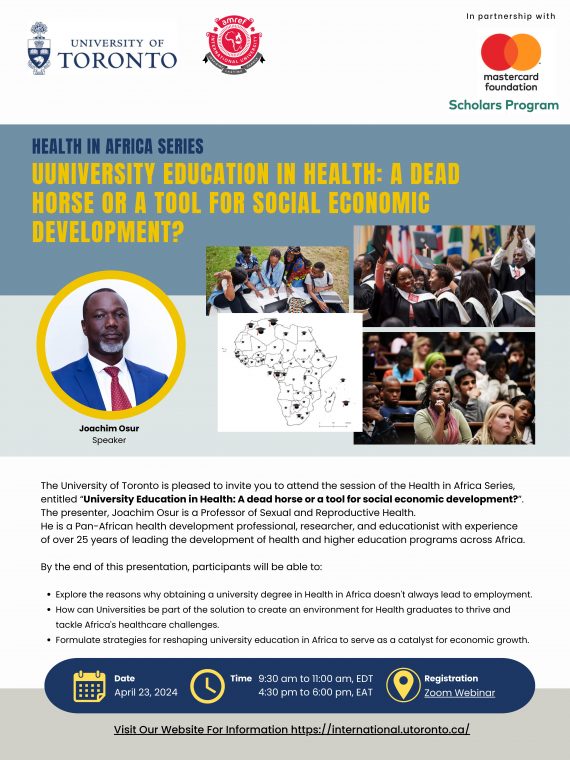The University of Toronto is pleased to invite you to attend the session of the Health in Africa Series, entitled “University Education in Health: A Dead Horse or a Tool for Social Economic Development?”.
The presenter, Joachim Osur is a Professor of Sexual and Reproductive Health. He is a is a Pan-African health development professional, researcher, and educationist with experience of over 25 years of leading the development of health and higher education programs across Africa.
By the end of this presentation, participants will be able to:
- Explore the reasons why obtaining a university degree in Health in Africa doesn’t always lead to employment.
- How can Universities be part of the solution to create an environment for Health graduates to thrive and tackle Africa’s healthcare challenges.
- Formulate strategies for reshaping university education in Africa to serve as a catalyst for economic growth.
More News & Events
Skip scroller content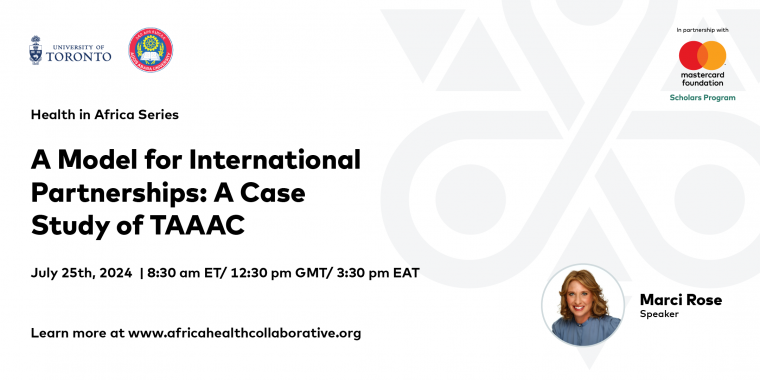
A Model for International Partnerships: A Case Study of TAAAC
The University of Toronto and Addis Ababa University are pleased to invite you to the next episode of the Health in Africa series discussing A Model for International Partnerships.
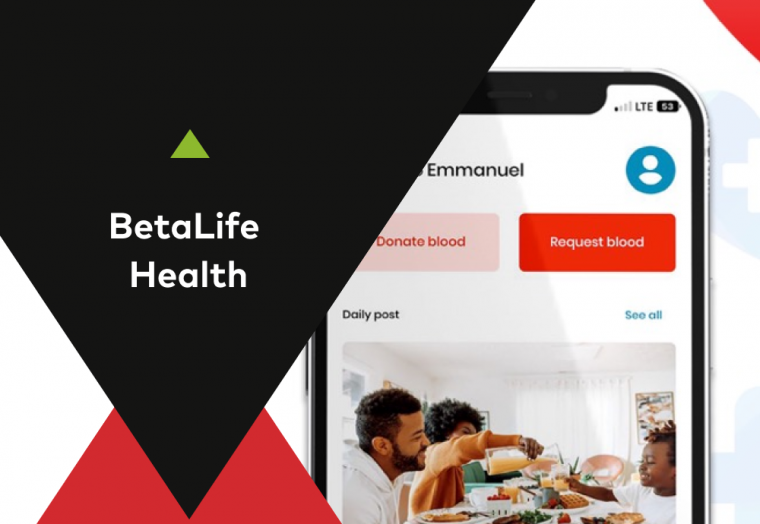
Venture Spotlight: BetaLife Health
BetaLife Health uses artificial intelligence (AI) to revolutionize blood supply management across Africa. Their platform uses predictive analytics to optimize blood inventory levels, distribution logistics and donor engagement, thereby improving the timeliness and availability of blood for transfusions.
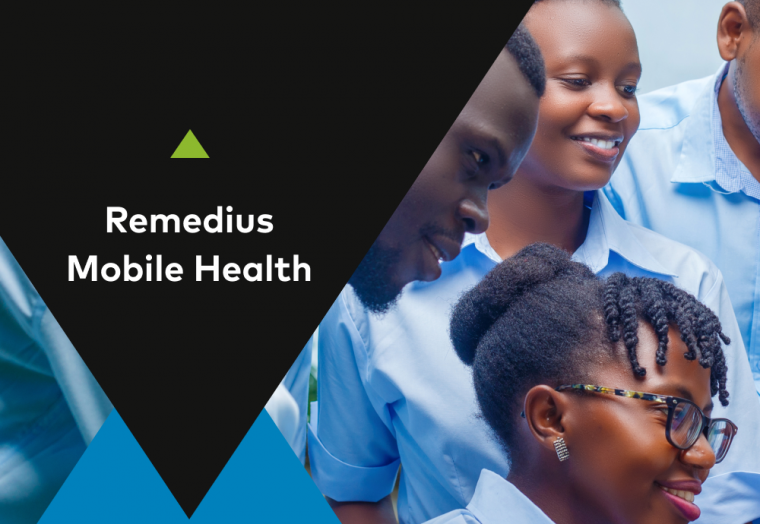
Venture Spotlight: Remedius Mobile Health
Remedius Mobile Health aims to combat the identified problems by leveraging telemedicine through the Remedius Live platform. They seek to provide fast virtual appointment scheduling with doctors and specialists at affordable rates of about five dollars and provide comprehensive care to chronically ill patients. This is executed through an integral network of facilities that provide physical care to these patients if need arises.

Venture Spotlight: Powerstove Energy
Powerstove designs and manufactures smart smoke-free cookstoves that also self-generate electricity for users to charge their mobile phones and power home appliances using proprietary renewable bio-pellets as fuel. These sustainable, mosquito repellent bio-pellets are produced from post-harvest crops and wood waste.
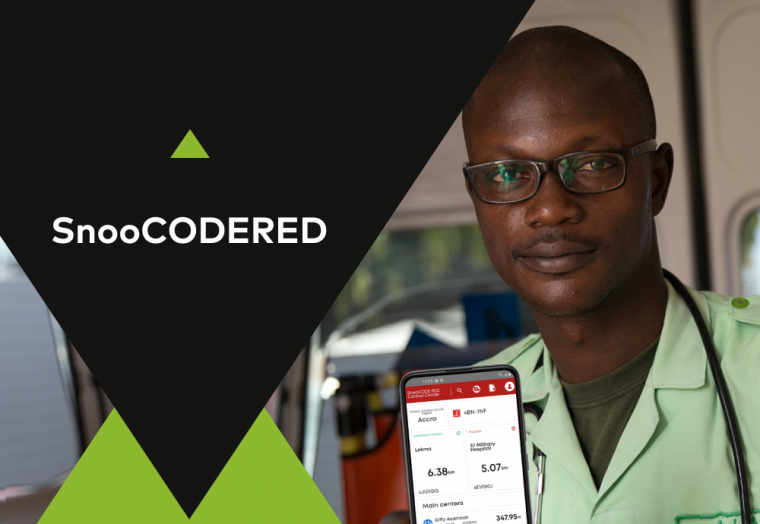
Venture Spotlight: SnooCODERED
SnooCODERED aims to solve the problem of inadequate healthcare infrastructure (systems, facilities and human resources) in Africa. It is doing this by providing a suite of cost-effective mobile healthcare logistics applications that democratize access to the ambulance or first aid response, facilitate the delivery of medical supplies to diverse populations, and improve contact tracing and epidemiological modelling.
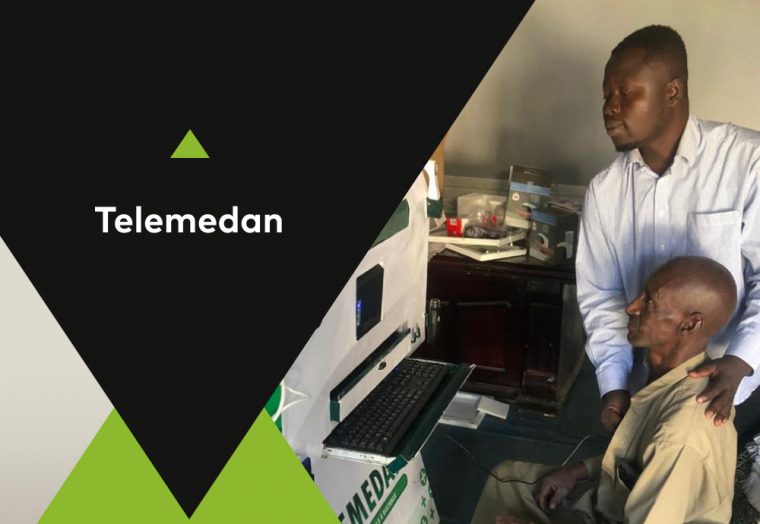
Venture Spotlight: Telemedan
Telemedan creates telemedicine kiosks in underserved communities in order to move toward closing the healthcare accessibility gap. Their kiosks facilitate video conferences between patient and doctor. They are equipped with medical devices for taking vital signs, such as ECG analysis, temperature measurement and blood oxygen saturation. Further, they feature stethoscopes, dermascopes, an HD camera and a scanner for the easy sharing of documents and lab results. With a focus on ease-of-access, Telemedan’s kiosks are user-friendly and accessible to those of varying levels of technology literacy.
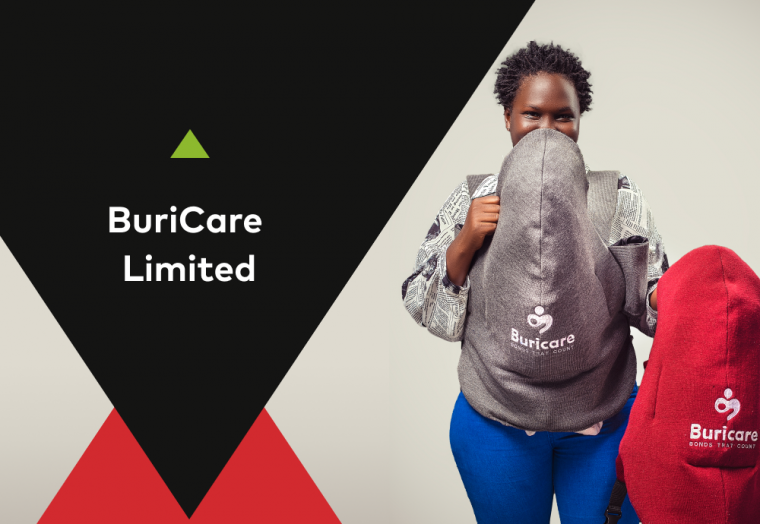
Venture Spotlight: BuriCare Limited
BuriCare Limited has launched their Kangacare baby carriers, designed to address the critical need for newborn care, especially in regions lacking adequate neonatal facilities. With only four Neonatal Intensive Care Units available in their country, Kangaroo Mother Care emerged as a cost-effective solution, promoting vital skin-to-skin contact between mother and newborn to regulate body temperature. These locally knitted carriers are equipped with essential sensors capable of monitoring the baby’s temperature, pulse rate, and oxygen saturation. In the event of any abnormalities, an alarm alerts the mother to seek immediate assistance.
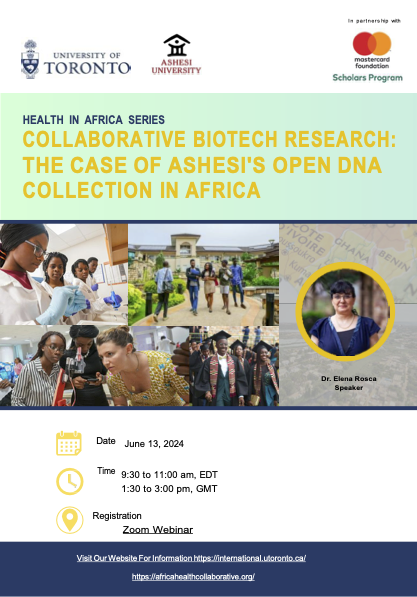
Collaborative Biotech Research: The Case of Ashesi’s Open DNA Collection in Africa
The University of Toronto and Ashesi University are pleased to invite you to the next episode of the Health in Africa series discussing Collaborative Biotech Research: The Case of Ashesi’s Open DNA in Africa.
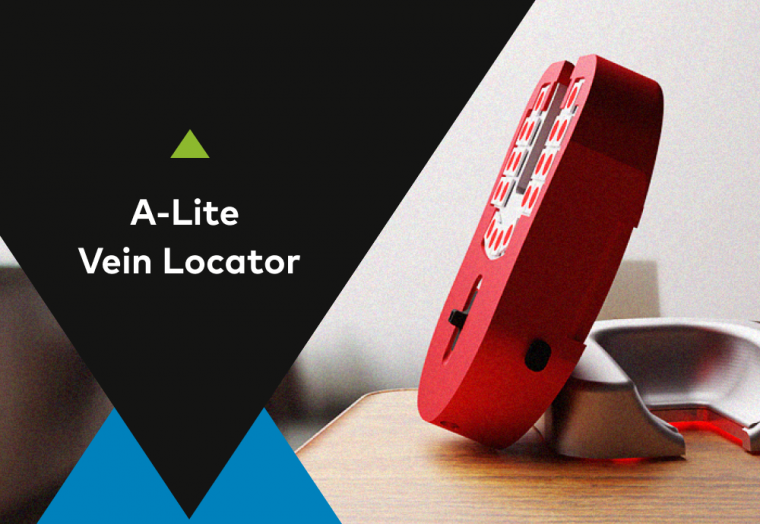
Venture Spotlight: A-Lite Vein Locator
The A-Lite Vein Locator is a medical device that facilitates the non-invasive detection of veins under the skin. Using the A-Lite Vein Locator shortens cannulation time by up to 88.5 seconds and lowers the risk of needle-stick injuries and infections. Further, the use of the A-Lite Vein Locator has been shown to decrease medical waste and unnecessary use of clinic resources.
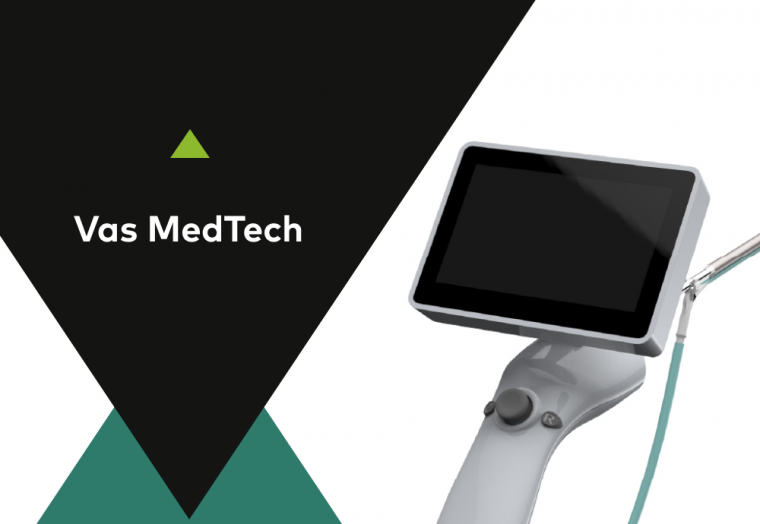
Venture Spotlight: Vas MedTech
Vas MedTech offers FlexiGyn, a portable, user-guided, and minimally invasive diagnostic camera that can operate in less specialized settings. This innovation is not only cost-effective, but also enhances accessibility. FlexiGyn enables community primary healthcare providers, such as nurses and general practitioners, to perform initial screenings and seamlessly consult with gynecologists for further diagnosis and referrals. FlexiGyn aims to make comprehensive women’s health care more accessible and convenient than ever before, thus addressing a global disparity in women’s health services.
